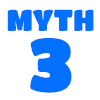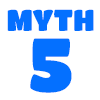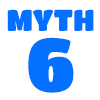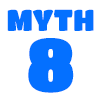
RSV Myths vs. Facts
The RSV (Respiratory Syncytial Virus) vaccine is a game changer especially for high-risk groups like older adults, pregnant women, and those with weakened immune systems. RSV can lead to severe illness in these populations, still myths about the RSV shot persist. Let’s clear them up.

Myth
Only infants are at risk for severe RSV infection.
Fact
Older adults and individuals with certain medical conditions are also at risk for severe RSV illness.
Here’s why: While RSV often causes mild, cold-like symptoms, it can lead to serious complications like bronchiolitis and pneumonia in infants, older adults, and those with chronic heart or lung disease or weakened immune systems.

Myth
There are no preventive treatments available for RSV.
Fact
Preventive treatments, including vaccines and monoclonal antibodies, are available for certain groups.
Here’s why: Vaccines are available for older adults, and monoclonal antibody treatments can protect infants and young children at high risk for severe RSV disease.

Myth
You can only get RSV once in your lifetime.
Fact
It’s possible to get RSV multiple times.
Here’s why: Reinfection can occur throughout life, and while subsequent infections are generally less severe, they can still pose risks, especially to vulnerable populations.

Myth
RSV is only a concern during the winter months.
Fact
RSV infections can occur year-round, though they are more common in fall, winter, and spring.
Here’s why: While RSV activity typically peaks during the colder months, infections can happen at any time of the year.

Myth
Good hygiene isn’t effective in preventing RSV.
Fact
Practicing good hygiene is crucial in preventing the spread of RSV.
Here’s why: RSV spreads through respiratory droplets. Regular handwashing, avoiding close contact with sick individuals, and cleaning surfaces can help prevent transmission.

Myth
RSV is a rare virus.
Fact
RSV is a common respiratory virus that most children encounter by age two.
Here’s why: Nearly all children will have had an RSV infection by their second birthday.

Myth
Adults don’t need to worry about RSV.
Fact
Adults, especially those 60 years and older or with certain health conditions, can be at risk for severe RSV illness.
Here’s why: RSV can cause serious illness in older adults, leading to conditions like pneumonia and worsening of COPD.

Myth
If you’ve been vaccinated against the flu, you’re protected against RSV.
Fact
Flu vaccines protect against flu, not RSV. A separate vaccine is needed for RSV.
Here’s why: RSV and influenza are caused by different viruses, so vaccination against one does not confer immunity to the other.
Updated January 15, 2025, 11:47 AM
